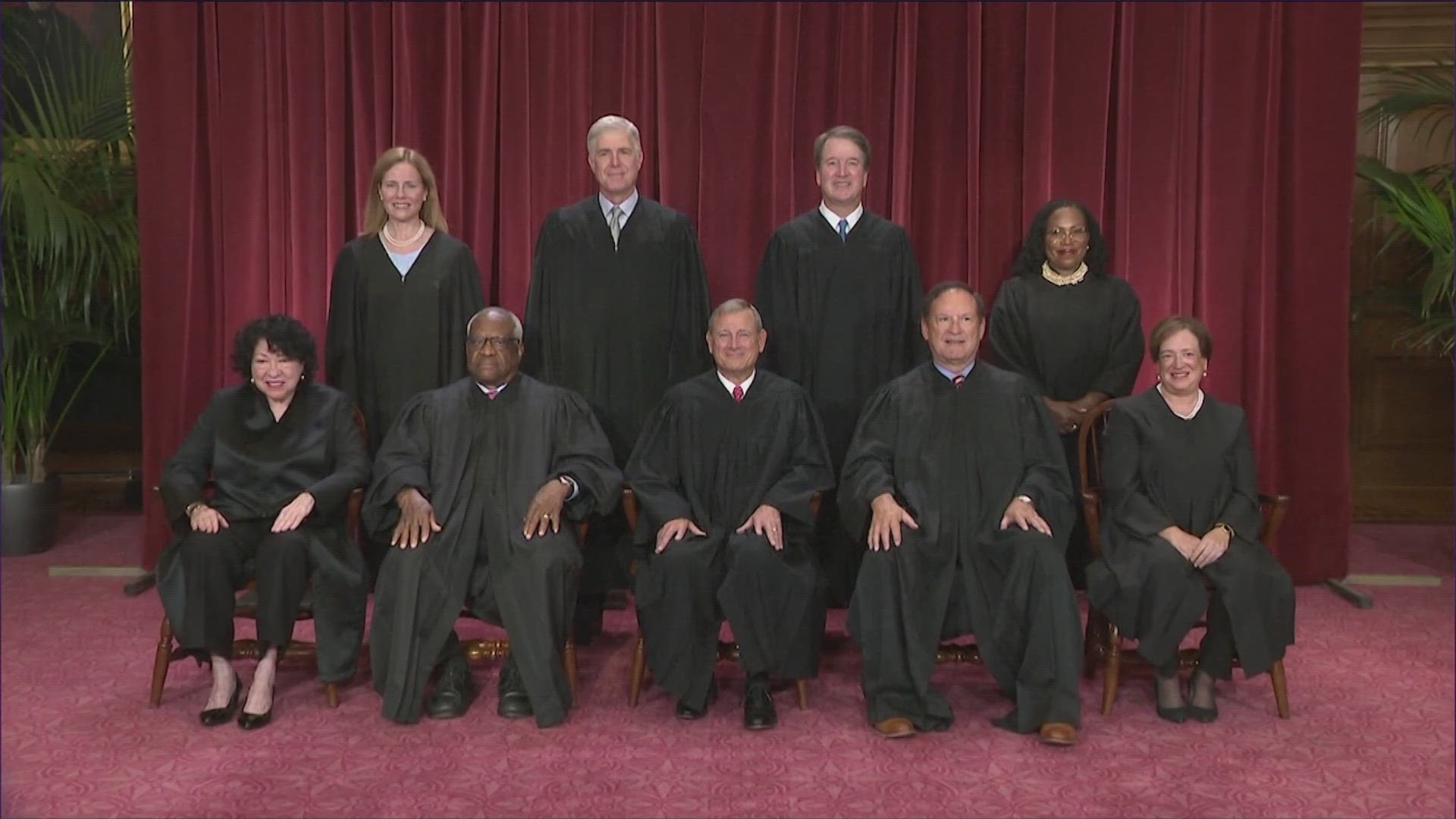AUSTIN, Texas — The U.S. Supreme Court announced a decision Thursday that strikes down affirmative action admissions policies at universities, leaving some civil rights activists feeling like it’s a setback for students of color.
“I think it eliminates, or without expressly doing so, overturns precedent over many, many years,” said Gary Bledsoe, the president of the Texas Chapter of the NAACP.
The Supreme Court overturned admissions plans at Harvard University and the University of North Carolina (UNC). The court voted 6-3 in the UNC case and 6-2 in the Harvard case. Justice Ketanji Brown Jackson was among those who dissented the decision to strike down affirmative action, calling it "truly a tragedy for us all."
In her dissent, Jackson talked about the hypocrisy that the decision does not apply to the nation's military academies.
“Justice Ketanji Brown Jackson wrote a very, very sharp response, and in her dissenting opinion, saying, ‘Okay, you want minorities to have equal opportunity in the foxhole to fight war, but not in the boardrooms to be a part of the decision makers of importance in this country,’” Bledsoe said. “And I think that really is very significant and illustrative.”
Bledsoe also feels the decision is hypocritical because he said it does not allow for diversity of thought in universities.
"What I think we all know is that segregated schools are breeding grounds for racism, and I think to the extent that you end up getting some kind of monolithic or close to monolithic type structure or enrollment in the university, that will be to the disadvantage of all those students who are enrolled," Bledsoe said.
In Texas, the decision will most significantly impact the University of Texas at Austin, as it is the only public university in the state that considers race in admissions. Several private universities will also be impacted because they too consider race, including Austin's St. Edward’s University, Rice University in Houston and Southern Methodist University in Dallas.
UT provided KVUE with the following statement in response to the Supreme Court's decision:
“Since the Supreme Court’s 2016 ruling in Fisher v. University of Texas, The University of Texas at Austin has continued to recruit and enroll consistently stronger classes composed of students from diverse backgrounds and perspectives, and improved graduation rates among all students, especially those who are underrepresented or first-generation. While doing so, the University has lawfully been considering race among many factors as part of its comprehensive and holistic admissions process. UT will make the necessary adjustments to comply with the most recent changes to the law and remains committed to offering an exceptional education to students from all backgrounds and preparing our students to succeed and change the world.”
KVUE also received statements from Texas State University, St. Edward's University and Austin Community College regarding the Supreme Court's decision.
Below is the statement from Texas State University:
“Race is not a factor in the Texas State University admissions process. When admitting students, the university takes a holistic approach that includes the consideration of grades, rigor of courses completed and high school class rank. Texas State welcomes and serves students from all backgrounds and is proud to be a Hispanic Serving Institution and Minority Serving Institution with a student body that closely reflects the demographics of the Texas population.”
Below is the statement from Tracy Manier, vice president for the enrollment management at St. Edward's University:
"Like many colleges across the country, St. Edward’s has engaged in a holistic review process when considering applicants for admission. This means that all aspects of the student’s application, and any additional information the student chooses to share, are part of that review. This includes considering one’s background, identity and life experiences or perspectives, which are often central to the applicant’s identified race or ethnicity.
St. Edward’s has a long history and commitment to the educational values of diversity in higher education, and that mission will remain as we adapt to the court’s ruling which eliminates the consideration of race in admission. We are a Hispanic serving university with a minority/majority student population. Leaning into that history, and continuing to draw interest from diverse populations across the country and internationally, will be central to maintaining that commitment."
Below is the statement from Austin Community College:
“As a public community college, Austin Community College District (ACC) is an open-access institution. The college welcomes all students and continues to remain open-access.”

